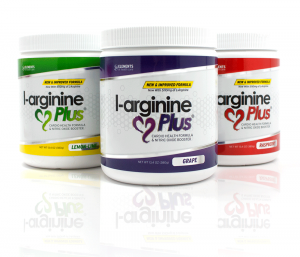COVID-19 survivors have a higher chance of developing cardiovascular disease. Find out how to improve your heart health after COVID-19.
Many healthy and fitness-minded people have found themselves at a confusing point in their life after surviving COVID-19. In fact, many have experienced chest pain, exercise fatigue, and even cardiac arrest weeks after recovering.
Scientists are still determining the effects of what people call “long COVID,” which includes fatigue, shortness of breath, and irregular heart rhythms. Furthermore, a recent analysis of Department of Veterans Affairs health records suggests that COVID survivors have a substantial risk of developing cardiovascular disease.
COVID and Heart Disease
 “When we do [traditional medical exams for diagnosing heart conditions], they’ll actually look pretty good,” says Dr. Ruwanthi Titano, a cardiologist at Mount Sinai’s Center for Post-COVID Care in New York City. While they will still perform these basic tests to rule out any abnormalities, doctors had to reimagine how they diagnose patients with long COVID.
“When we do [traditional medical exams for diagnosing heart conditions], they’ll actually look pretty good,” says Dr. Ruwanthi Titano, a cardiologist at Mount Sinai’s Center for Post-COVID Care in New York City. While they will still perform these basic tests to rule out any abnormalities, doctors had to reimagine how they diagnose patients with long COVID.
New studies suggest that the cause of the problem has to do with the nerve fibers that help control circulation. When these nerve fibers are damaged, patients experience what’s called small fiber neuropathy – and the tools to treat this already exist.
“People are not going to have to live with this for the rest of their lives,” says Dr. Salim Hayek, a cardiologist, and co-director of Michigan Medicine’s COVID-19 Long Haul Clinic in Ann Arbor. “The vast majority of the time, these symptoms ranging from palpitations to lightheadedness resolve within six months of treatment.”
Improving Heart Health Post-COVID
Many people recovering from COVID-19 can benefit from physical and mental health rehabilitation services. For example, practicing deep belly breathing daily can help the lungs soak up oxygen and reduce pain and anxiety.
You can also try a self-pacing technique to conserve your energy throughout the day and help reduce post-COVID fatigue. While exercise is necessary, it’s important that people with long COVID return to their usual workouts at a slower pace. For instance, you may start by doing seated cardio exercises and eventually try an elliptical or walking on a treadmill if you feel comfortable.
Another important aspect of this is to track your progress over time using a heart rate monitor, blood pressure cuff, or pulse oximeter. Since progress after long COVID can be incredibly slow, this can help you see your improvements over time.
The Outlook
 By trying out these different physical rehabilitation exercises, you may be able to help improve your health after surviving COVID. However, if you experience debilitating symptoms, talk to your doctor about getting prescription medications to help you out.
By trying out these different physical rehabilitation exercises, you may be able to help improve your health after surviving COVID. However, if you experience debilitating symptoms, talk to your doctor about getting prescription medications to help you out.
In addition, some people may experience a boost in their heart health from taking supplements like L-arginine Plus. Its ingredients work to promote circulation, blood pressure health, cholesterol health, and more. Talk to your doctor to see if taking l-arginine supplements may help support your heart health.

